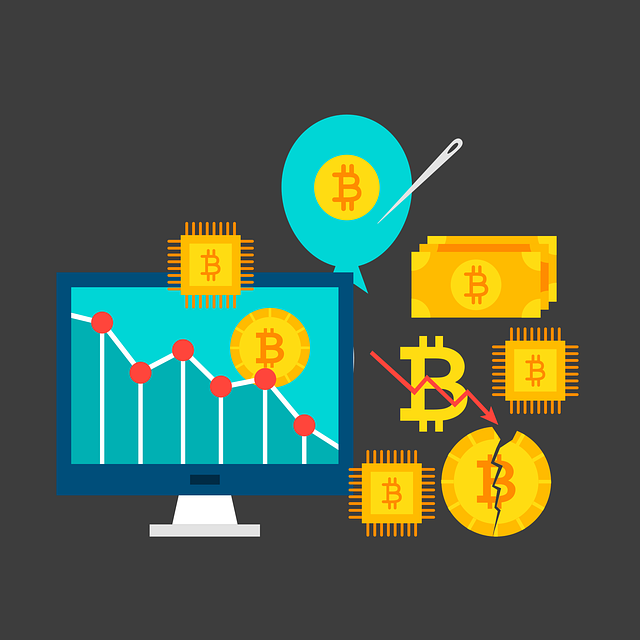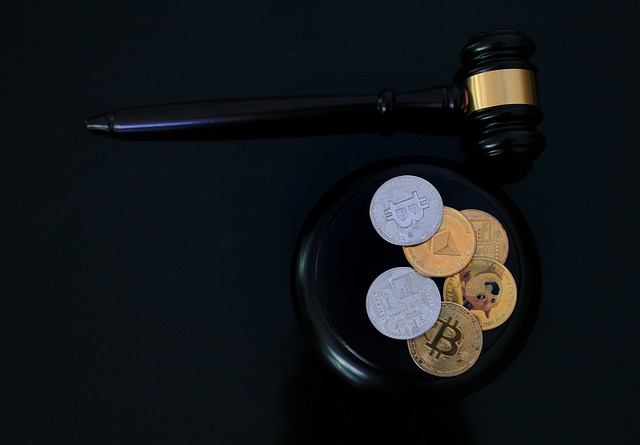Cardano's ADA token addresses decentralized finance (DeFi) and its regulatory challenges through a sophisticated proof-of-stake consensus mechanism and smart contract capabilities. The native utility and governance token enables users to participate in network governance, vote on proposals, and earn staking rewards while fostering transparency and democracy within DeFi. Cardano's emphasis on scalability, security, and sustainability, along with formal verification and peer-reviewed research, ensures a robust and compliant infrastructure for financial services, catering to both tech-savvy users and investors concerned about security and legal protections.
Cardano’s ADA token has gained attention for its robust tokenomics, particularly within the realm of decentralized finance (DeFi). This article explores two key aspects: Understanding Cardano ADA’s intricate tokenomic structure, which enables efficient governance and incentives; and how ADA navigates the complex landscape of regulatory challenges in DeFi, positioning it as a potential game-changer in the industry. By delving into these topics, we aim to provide insights into Cardano ADA’s potential to revolutionize decentralized finance while addressing critical regulatory considerations.
- Understanding Cardano ADA's Tokenomic Structure
- Navigating Regulatory Challenges in Decentralized Finance (DeFi) with Cardano ADA
Understanding Cardano ADA's Tokenomic Structure

Cardano ADA’s tokenomic structure is a complex yet innovative system designed to support decentralized finance (DeFi) and address its regulatory challenges. At its core, Cardano leverages a unique blend of proof-of-stake (PoS) consensus mechanism and smart contract capabilities, ensuring both security and scalability. This dual approach not only facilitates faster transaction processing but also makes it more energy-efficient compared to traditional proof-of-work systems.
The ADA token plays a pivotal role in this ecosystem by serving as the native utility and governance token. Holders of ADA can participate in network governance, vote on proposals, and earn staking rewards for securing the network. This decentralized governance model aims to create a more transparent and democratic environment within DeFi, where decisions are made collectively by the community, mitigating some of the regulatory uncertainties often associated with centralized finance.
Navigating Regulatory Challenges in Decentralized Finance (DeFi) with Cardano ADA

Cardano’s ADA token offers a compelling solution to navigating the complex landscape of decentralized finance (DeFi) and its regulatory challenges. With a strong focus on scalability, security, and sustainability, Cardano aims to provide a robust infrastructure for financial services while adhering to global regulatory standards. The platform’s unique approach involves incorporating formal verification and peer-reviewed research, ensuring transparency and compliance from the outset.
By leveraging these principles, Cardano ADA can facilitate the development of decentralized applications (dApps) that meet the stringent requirements of traditional financial institutions and regulatory bodies. This dual focus on decentralization and regulation paves the way for a more inclusive and trustworthy DeFi ecosystem, attracting both tech-savvy users seeking innovation and investors concerned about security and legal protections.
Cardano’s ADA tokenomics offer a unique approach to addressing the complex issues within decentralized finance (DeFi), particularly its regulatory challenges. By leveraging a robust tokenomic structure, Cardano aims to create a stable and secure environment for DeFi applications. Navigating these regulatory hurdles is crucial for the mainstream adoption of blockchain technology and DeFi, and Cardano’s comprehensive strategy positions it as a potential game-changer in this space.
